Salvador Sango (real names Sotiris Papadopoulos) is a Greek born scientist and musician who came to Nigeria first to teach at University of Port Harcourt, then to make music and finally to live for over 35 years, making more and more music.
His stay in Nigeria has seen him as HOD Physics department at Uniport and band leader of his own band, a band that has successfully created its own brand of music, an esoteric mix of a fusion of Greeko- euro sound with afro, jazz and latino influences with which he is touring the world.
What is so novel about this is that the band members are all Nigerians and the singles and albums are just numerous including ‘SALVADOR SANGO’, THE ADVICE OF SANGO’, ‘CUANDO SE CAEN LAS MASCARAS’ (WHEN THE MASKS FALL), ‘PRIMITIVE FIRE’, GBADUN ARA E’, a collaboration with Nigerian stars.
He also has 67 videos on Youtube
In this chat, he tells it all to FRED IWENJORA the story of his journey through life and music, circumstances of his coming to Nigeria and becoming Nigerian and how he was able to cook up his kind of sound. Again, he tells how he played in Fela’s band and what Fela told him?
Enjoy this. How does it feel to be called Oyinbo Nigeria?
I feel good not to be just an ‘Oyinbo’, I am also a Nigerian citizen, so not your average Oyinbo who came to Nigeria to make money as evidenced by the stories about my life in Nigeria told here. I am grateful to President Mohammadu Buhari who made me a certified Nigerian in 2022 after about 35 years in this country.
Moreover, if I wanted to follow the path of the other Greeks who come to work here, you would have neither interest nor reason to interview me on this medium. It is my belief that a man’s legacy is judged by the contribution to mankind he leaves behind, not by the material wealth he has amassed during his short period on this Earth. So, yes, I do not belong to this class of Greeks. Last but not least, I would like to thank you for the opportunity you have afforded me to tell my story and present my work to the Nigerian people, my people.
Could you trace the history of your early life and how music came along?
I left Greece at the age of 17 to study Physics in Germany. Before settling in Nigeria, I travelled to another 67 countries and lived in 11 of them, Physics being one of the major reasons for that and curiosity another. Based on these facts, I believe I have rightfully earned the title of world citizen.
Having been infected with the music virus since childhood, these travels afforded me the perfect opportunity to become exposed to various types of music. While a student in Germany and at the same time aspiring to become a rock star guitarist, I was given one of Fela’s records and even though I did not understand the lyrics, I was struck by the power and complexity of his rhythm.
Again, when I was awarded a Rhodes scholarship to study towards a PhD in Atomic Physics at Oxford I was sent to the US for my experimental work at AT&T in NJ but lived in New York and attended the prestigious Jazzmobile seminar in Harlem.
I head to Nigeria after finding jazz..
My first real exposure to jazz was while living in Spanish Harlem. I was bombarded with Salsa and Afrocuban music for which I developed an everlasting love. When I returned to Oxford to write my doctoral thesis some three years later, musically speaking, I was a new, richer man. Then, in 1988, for purely ideological/scientific reasons I decided to discontinue my top-level research in Atomic Physics and leave the Max Planck Institut in Berlin where I was then working, I asked UNESCO to offer me a teaching position in the third world and Nigeria was in the cards.
Meeting Fela and first Nigeria musical lessons
I had played with Fela on a previous visit to Nigeria, so Nigeria was the obvious choice. I was appointed Head of the Physics Department at the University of Port Harcourt. It was a tall order being professor during the day and musician at night but I did not mind. I played with the Port Harcourt Jazz band at first, then with my own jazz quartet ‘SPICE and simultaneously with scores of other stars and starlets, including Dizzy Gillespie and James Moody when they performed at the Civic Centre in PH, Victor Uwaifo, Geraldo Pino, to name a few, thus adapting my skills to their own music. My first big lesson in musical diversity. You are getting the picture… ?
Moving to Lagos
A few years later, I moved to Lagos for professional reasons. I re-established contact with Fela and started playing jazz, not afrobeat, with him at Tunde Kuboye’s Jazz 38 twice a month till Fela got sick. At the same time, I discovered Muyiwa Majekdunmi’s legendary Jazzville in Yaba, which became my performance home for several years. I would simply get on stage without knowing the musicians or their music and undertook the enormous but equally rewarding task of blending with them to the point that when, one night I played with Orlando Julius’s band, the audience thought that I had been a member of this band for years. Yet, I had just met the man. Second lesson in musical diversity. Moreover, my payment was a bottle of Coke, but I was not there for the money.
Meanwhile, with the idea of putting together my own band, I became a teacher to scores of musicians, all for free. The truth is that, apart from my ‘good Samaritan’ attitude, I also had the ‘selfish’ motive of wanting the musicians I taught to reach a higher standard in music so that some chosen ones would be able to play the technically challenging material that I aspired to play with the new band I had in mind.
Living in Lagos and being exposed to mainly Yoruba music and culture, I discovered Fuji. Each Fuji party became a distinct lesson in African (poly) rhythm for me and I was recording each rhythmic pattern in my brain till their rhythms became a part of me.
Digitalising my music, creating my unique sound
In 1994, I brought Cubase from Europe with me. It is a music software that has since become the standard tool in most studios. With this tool I turned my computer into a band as I was able to compose for any instrument and make these instruments play together as if they were in a band. I had already composed some latin jazz tunes for the guitar while doing my military service in Greece and here was a grand opportunity to give life to these compositions with this new tool. I was beginning to find my own voice which contained all the musical experiences and stimuli I was privileged to gain hitherto. I was sowing the seeds of Salvador Sango’ …
Oyinbo man and his band of Nigerians
I have partly answered this in the previous question but I need to add some more. Being a band leader in Nigeria turns you into either a mad man or a dictator or the best man-manager any multinational would pay dearly to acquire. Or all three above. To succeed in such a difficult task you must have infinite love for music, a clear vision, persistence and, most importantly, money. You must also recognize that different people who want to play with you have very different motives. Amongst the capable ones, some come to play with you because they believe in you and your music, some because they are only after money (very common), some because they believe you will help them become the star that you are and some because they see you as a way to leave Nigeria and never return (also very common), or a mix of all of the above. As a band leader, you must provide instruments for the musicians to play on since, for the most part, they cannot afford their own, pay their transport/rehearsal fees or, as the case may be, afford them living quarters. To this day, all the houses I have lived in have provision for musician quarters and a rehearsal studio. I have spent a fortune to buy equipment that I personally have no need for.
What I learnt from Fela
During private discussions with Fela I learnt a great deal about band management which prepared me for what to expect in my own case, himself having been a ‘victim’ of the way things are in Nigeria. He had on many occasions been left stranded right before big shows overseas because some of his musicians had absconded hours before they were scheduled to appear on stage. He even told me that, right before Sunny Ade’s performance for the Japanese Emperor in Tokyo, his musicians came to him and said they would not perform if he did not double their pay.
I had my own share of that when, during a European tour, five of my musicians ‘vamoosed’ before completing the tour. I was lucky I was not taken to court for breach of contract but less lucky when my name got blacklisted at the embassy which issued them Schengen visas upon my written undertaking that they would return after their tour. 11 people flew out of Nigeria and only 6 returned. It took me years to reverse the blacklisting.
My band of Nigerian musicians, an overview
Nigeria disposes of a large number of very talented musicians and I have been lucky to have played with some of the best, some of whom feature prominently in the Nigerian (and international) music scene today and I am proud to have been associated with them. It is true that nearly all of them were not what they are today when they started with me but through constant practice, rehearsal and coaching they have achieved the level of musicianship that enthralls our audiences both in Nigeria and overseas. Needless to say, I have also evolved along with them into the instrumentalist and composer I am today. One of the major differences between our band and the overwhelming majority of other bands in Nigeria is that our musicians read music. This is because, with the exception of the solo parts, the music is composed and arranged from beginning to end. This means that when we play the same song in two different concerts, the song will sound the same, UNLESS, we have agreed beforehand to change the arrangement for the sake of variety and this usually happens with our best known songs. The other advantage of playing music that is written and arranged is that if, for example, we need to change the bass player –for whatever reason-, the new bassist will play the same bass line as the previous one. Thus, for most part, the music does not depend on the players playing it. Of course, each player contributes his own feel and touch to the music but the notes remain essentially the same.
Life at University of Port Harcourt
I spoke about Uniport in your first question but let me elaborate. I was the youngest member of Senate and the youngest Head of Department at Uniport. Some of my students were older than me. Teaching was a novel experience for me but I found out that I liked it. I formed a bond with my students and with the meager means at my disposal, I made sure the students came out of the lecture with a better understanding of Physics than before. I was not there just to talk and go but to interact, ask questions and receive questions and I never played ‘Oga’. This impression I left on my students, is my fondest memory. Through personal efforts I secured overseas scholarships for four of them to further their studies up to PhD level and that is an achievement which I am not only fond but also proud of.
On the social level, I very much enjoyed Rivers girls, some of the most beautiful women Nigeria has and, of course, my life as a musician. All the friendships I formed, all the beautiful and interesting people I met who I still think fondly of to this day. Having said that, with the then salary of N1,173 per month, you can imagine that the quality of my life was very difficult, to say the least. But I was determined to pull through and I consider myself lucky to have had such an experience. Plus, Rivers State made me fall in love with Nigeria as a country. Such beautiful and diverse landscapes! All these images became music afterwards.
‘Ojotto Village’ in our first album is an example.
Some idiot ‘black’ American working for Shell in PH who was fairer than me in complexion told me that ‘Oyinbo’ means ‘lipless’, since white peoples’ lips were, in his perception, non-existent. So, at that time, I construed that word to be derogatory. However, having been called that millions of times in my 35 years in Nigeria, and having been given a totally different version of what ‘Oyinbo’ means to Nigerians through my association with the Yorubas, it has zero impact on me today.
Your music sounds esoteric…
My/our music, yes, sounds esoteric because I am an ‘esoteric’ and spiritual person, so it stands to reason that this is the kind of music I would produce, but it also contains a lot of Africa and Cuba in it. The superb African rhythm forces people to move while they listen to the more ‘esoteric’ aspects of it. If it were not esoteric and so diverse- sometimes there are four or more distinct styles in one song- it would just end up being music of only one label (afrobeat, rock, highlife etc) and would be devoid of all the ‘other’ elements which, when combined, uplift the human heart and mind.
Our music provokes different reactions to different audiences of different ethnic and cultural backgrounds. The Northern/Central Europeans appreciate the rock/jazz/blues elements in it while the Mediterraneans identify more with the salsa/flamenco/afro influences. As for the Nigerian audiences, I believe, they are taken by the ‘Oyinbo’ who sings nearly flawlessly in Yoruba. In any case, our music is not for ‘Davido’/’Whizkid’ audiences which, unfortunately for Nigerian music and culture, form the majority of younger audiences in Nigeria today. They have gold but they settled for zinc… But, thank God, there are still plenty people with ears left, both in Nigeria and overseas.
I dare say, our music is appreciated more overseas than at home judging from the number of people attending our concerts and from the sales of our albums physically and digitally.
Yoruba influence
I partially touched on the Yoruba influence in our music somewhere but the subject deserves a deeper explanation. This influence emanates from my having lived with this particular tribe for the overwhelming part of my sojourn in Nigeria; hence this is the tribe that I have had the opportunity to LEARN most from. I say ‘learn’ because I came to Nigeria with my cup half-filled and till present, thank God, there is space for more in it. Had my life and circumstances brought me to another part in Nigeria, I am convinced that my influences would have been different.
The Greek Dodecatheon and Yoruba Ifa; a comparison
Be it as it may and having come in close contact with the Yoruba language, music and culture, I learned a lot about Ifa’, their religious belief system, which, incidentally, is very similar to the ancient Greek Dodecatheon (=12 gods), the religion of the ancient Greeks. Even though the advent of Christianity in Greece, alas, demolished this religion, the famous and universally known Greek civilization is founded during the historical period of the Dodecatheon. The Yoruba case is similar. Their civilization and culture flourished prior to the advent of Islam and Christianity and there was a sharp decline afterwards as the Arab and European invaders saw in Ifa’ a powerful adversary who had to be diminished and ridiculed in order for the new beliefs to take root. Incidentally, the case is not different with all other tribal/geographical areas of what is today known as ‘Nigeria’. Is it surprising then that today’s Yorubas are, in their majority, ignorant of their historical heritage and consider Ifa’ to be just ‘juju’? The effect of this onslaught on African civilization by the ‘civilized’ Arabs and Europeans is augmented by the absence of written languages, since most Subsaharan languages are oral. Hence, African culture and civilization had to be taught to subsequent generations through the word of mouth with all the inevitable inaccuracies and changes this method entails. ‘Scripta manent’ said the Latins. Written records remain.
Then came slavery, another anathema of the human race. Even though the Arabs were the first and most ferocious slavers, history mostly remembers the Europeans. Nearly all Subsaharan tribes were affected but the coastal ones suffered most. The ‘civilized’ Europeans took the uncivilized Yorubas to the Americas, to Cuba and Brazil. But a miracle happened. The slaves became the cultural masters of the slavers. In America they ‘invented’ blues and then jazz, America’s most important cultural phenomenon, whereas in Cuba Ifa’ became ‘Santeria’ and in Brazil ‘Candomble’. Along with religion, African music and rhythm took their deserved place in these new slavery societies. Without the Efik slaves who brought the ‘clave’ to Cuba and Brazil, rhumba, salsa, samba and bossa nova would have never existed. Clave is the rhythmic cell that drives all Latin American music. Without the Yoruba drums and religious chants Cuban music would have remained in its ‘Oyinbo’ infancy. I have talked about this subject time and time again in TV/radio and press interviews.
Why Sango?
The Orisha that fits my personality closest is Sango’ the god of thunder and justice and the protector of the underprivileged. Being a ‘fiery’ god with a fiery personality he fits mine perfectly. Then, Salvador is the translation of Sotiris (=saviour), my first name, in Spanish, So, Sotiris Papadopoulos became Salvador Sango’ which signifies the fusion of Africa with the rest of the world. Hence the musical genre Afrofusion whose inventors we claim to be. Not to be confused with the current ‘Naija’ version of afrofusion which has nothing to do with what we do.
Source: VANGUARD
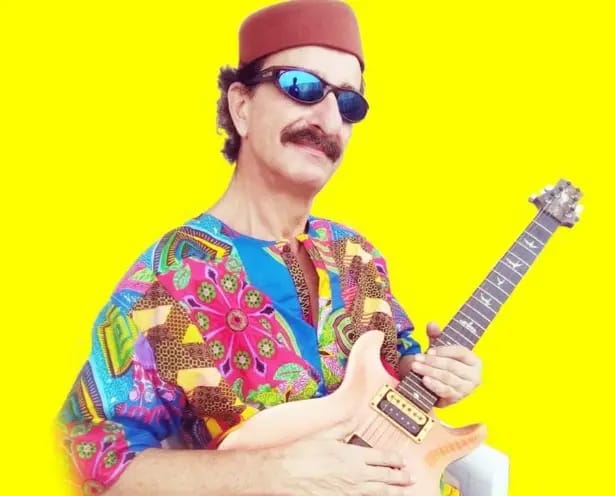

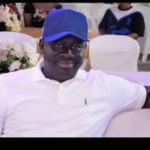


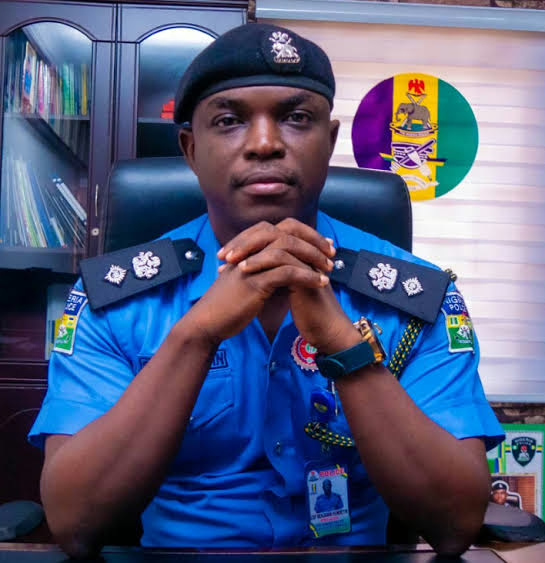
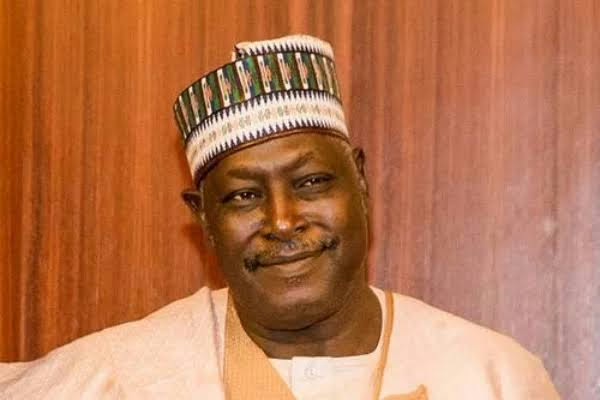
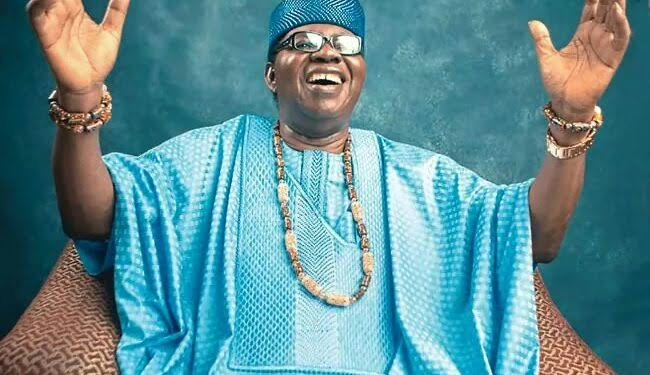
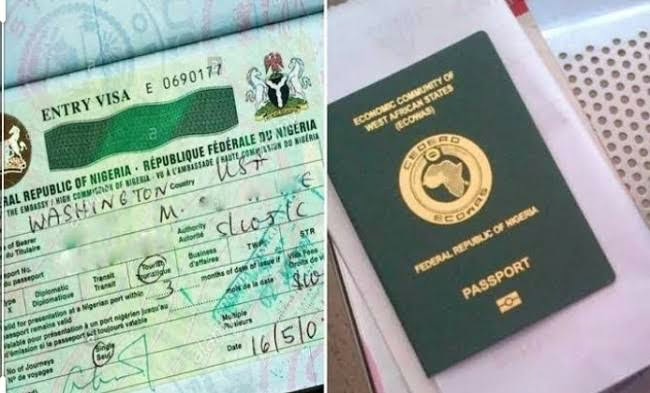
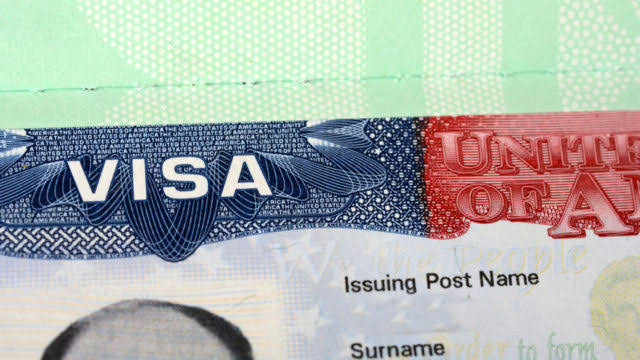

Leave a Reply